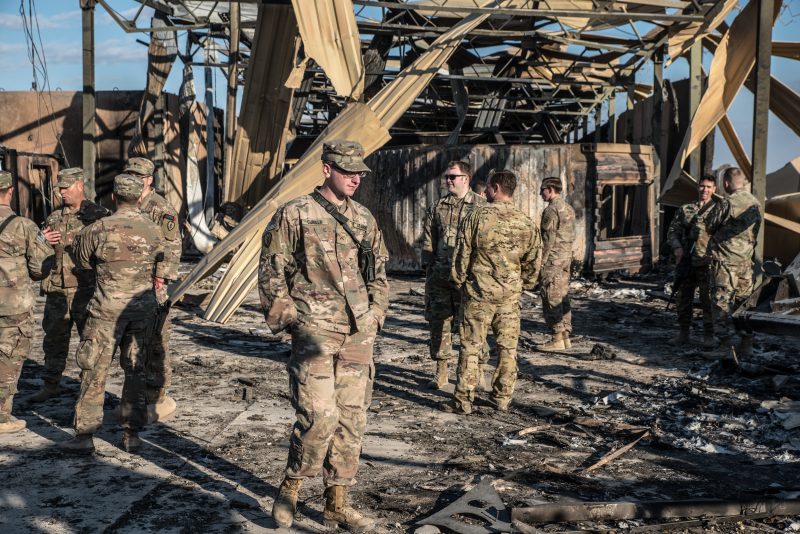In a recent statement regarding the injuries sustained by U.S. troops during the 2020 Iranian missile attack on an airbase in Iraq, President Donald Trump downplayed the severity of these injuries by referring to them as mere headaches. This dismissive characterization of the injuries has sparked outrage and criticism from various quarters, with many questioning the President’s empathy and understanding of the sacrifices made by the men and women in uniform.
The attack, which took place in January 2020, targeted the Ain al-Asad airbase in Iraq, where U.S. troops were stationed. The Iranian missile strikes resulted in several injuries to American military personnel, including cases of traumatic brain injury (TBI). While initially, the Pentagon had reported no casualties from the attack, it later emerged that dozens of service members had suffered injuries, with some requiring medical treatment and rehabilitation.
President Trump’s remarks regarding these injuries have been met with criticism from military officials, veterans, and political opponents. By downplaying the injuries as mere headaches, the President has been accused of minimizing the sacrifices and hardships faced by service members who put their lives on the line in defense of their country. The impact of TBIs, in particular, can be long-lasting and debilitating, affecting the physical and cognitive abilities of those affected.
Furthermore, the President’s comments have raised concerns about the need for greater awareness and support for veterans and active-duty personnel who suffer from injuries sustained in the line of duty. TBIs, often referred to as the invisible wounds of war, can have a profound impact on the mental health and well-being of service members, leading to issues such as depression, anxiety, and post-traumatic stress disorder (PTSD).
In response to the controversy surrounding his remarks, President Trump later clarified that he did not view TBIs as mere headaches and acknowledged the seriousness of these injuries. However, the initial trivialization of the troops’ injuries highlights a broader issue concerning the treatment and recognition of service members who suffer from the consequences of their service.
Moving forward, it is essential for leaders at all levels to show empathy and understanding towards those who have sacrificed for their country. By acknowledging the gravity of injuries such as TBIs and providing adequate support and resources for affected service members, we can ensure that those who serve in the military receive the care and respect they deserve. It is through such measures that we can honor the dedication and sacrifices of the men and women in uniform who defend our freedoms and values.
